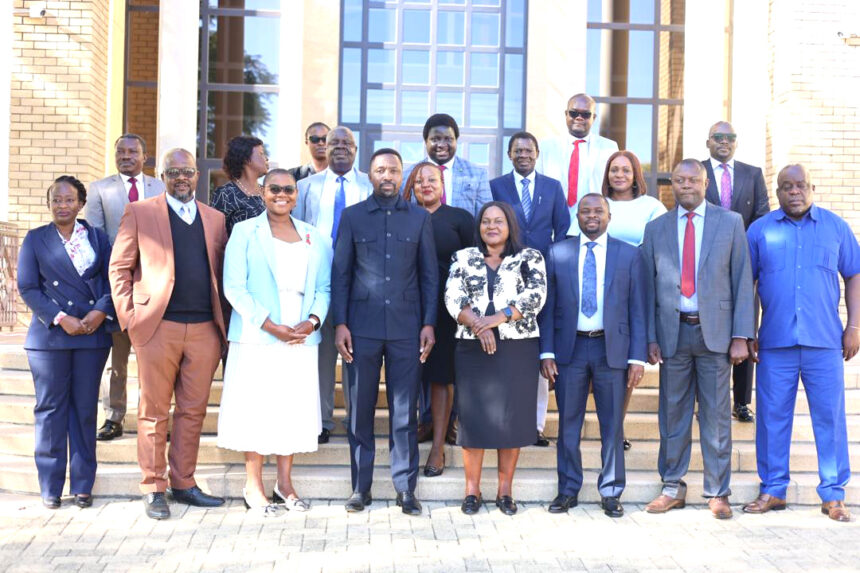Sakeus Iikela
National Council chairperson Lukas Sinimbo Muha says Namibia is exploring the possibility of entering into a cooperation agreement with the parliament of Zambia to learn more about how that country is implementing the constituency development fund law.
He said lessons from the implementation of the CDF law in Zambia will be valuable to Namibia, as the country plans to enact its long-awaited Constituency Development Fund Bill. An agreement between the National Council and the parliament of Zambia will, therefore, help facilitate exchange activities between the two parliaments.
Muha made these remarks during a courtesy meeting with the Committee on Privileges and Absences of the Parliament of Zambia. The Zambian delegation is in Namibia on a study visit aimed at exchanging experiences, practices and insights regarding the functioning of both Parliamentary Houses.
Zambia first introduced the CDF in 1995 as an instrument to facilitate the deliverance of public developmental goods and services directly to local communities.
Since then, the law has undergone a set of reforms that have seen the community-representation structure of the CDF develop, and the policy enshrined in Zambia’s constitution.
The most recent significant changes were made in 2022, which saw an unprecedented increase in the fund’s allocation from K1.6 million to K25.7 million per constituency.
The scope of the CDF was also expanded to include additional components such as youth and women empowerment programs, and locally-administered secondary school bursaries.
Muha told the Zambian delegation that the CDF Bill, which was initiated by the National Council, has been tabled in the National Assembly, and will soon be referred to the National Council for review.
“These exchanges are invaluable, providing an opportunity to learn from each other’s successes and challenges in parliamentary governance,” he said.
He acknowledged the critical role of parliamentary committees on privileges and absences in ensuring that members of Parliament perform their duties effectively.
“This visit provides a valuable opportunity for us to exchange ideas, experiences and strategies to enhance the effectiveness of our respective parliamentary systems,” Muha added.
He noted the continuous commitment to strengthening the friendship between the two nations and their legislative bodies.Muha also expressed gratitude for Zambia’s recent assistance during the hero’s burial of Namibia’s late former president Hage Geingob, highlighting the mutual respect and cooperation between the countries.
On her part, the deputy speaker of the National Assembly of Zambia, Malungo Chisangano, acknowledged the deep-rooted bilateral relations between Zambia and Namibia, and emphasised that the warm bilateral relations have translated into strong parliamentary collaborations.
“Our coming here is a testament to the good parliamentary relations. Several exchange and benchmarking visits have been undertaken between our parliaments over the years,” she said.
She added: “We also appreciate this opportunity to benchmark your Parliament on issues relating to members’ privileges and discipline. Through these platforms, our parliamentarians have been accorded an opportunity to share and exchange experiences and best-practices on how to effectively deliver on their parliamentary functions to enhance the lives of our respective people”.
-Sakeus Iikela is a researcher at the National Council.



